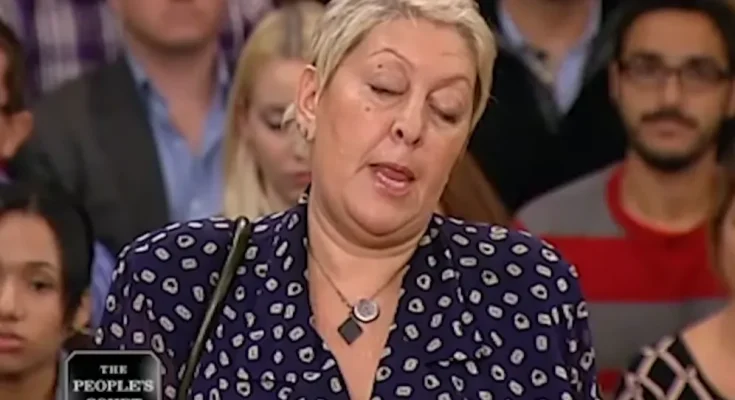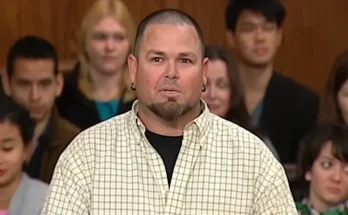In a case that has drawn attention to consumer rights and pet sales laws, Thomas and Lorraine Picarillo, plaintiffs in a small claims court case, were unable to recover veterinary expenses for a sick cat they had purchased. The court ruled in favor of the defendant, Marina, the pet shop owner, citing the plaintiffs’ failure to follow the proper legal procedures within the required time frame.
The case, which centered on a Scottish Fold cat, raised questions about the responsibilities of pet sellers and the rights of buyers in the event of a pet with health issues. The plaintiffs sought to recover $275.36 for veterinary costs they incurred after purchasing a cat from Marina’s pet store.
The couple bought the cat for $1,500 on April 9, with high hopes for a healthy new addition to their family. However, shortly after bringing the cat home, they noticed troubling signs of illness, including persistent sneezing.
The plaintiffs claimed that after consulting with a vet recommended by Marina, the cat’s symptoms did not improve despite treatment with antibiotics. Seeking a second opinion, the Picarillos took the cat to their own veterinarian, who diagnosed a congenital defect—a narrowing of the cat’s nostrils, making it difficult for the animal to breathe normally.
According to the plaintiffs, this condition was present from birth and severely affected the cat’s health.
In their lawsuit, the Picarillos argued that Marina, as the seller, should bear responsibility for the veterinary costs associated with the cat’s congenital condition, which they claimed was not disclosed at the time of sale. They contended that they should be reimbursed for the cost of medical treatment, which had already amounted to $275.36 by the time they filed their claim.
However, Marina, the defendant, had a very different version of events. The pet shop owner maintained that the cat was healthy at the time of purchase. She asserted that the cat had undergone a thorough veterinary check-up, including vaccinations, before being sold to the Picarillos.
Marina also stated that she could not be held responsible for any subsequent health issues that arose after the sale, especially since the cat had been given a clean bill of health prior to leaving her store.
Marina further argued that the health problems experienced by the cat were not congenital but were instead caused by the conditions in which the Picarillos kept the animal. She pointed to the fact that the couple had left a window open in their home, exposing the cat to cold weather, which she suggested could have contributed to the symptoms the cat developed.
In Marina’s view, the issue was not one of congenital health problems but rather the result of poor environmental conditions that were beyond her control.
Judge Marilyn Milian, presiding over the case, carefully considered the legal implications of the dispute. A key factor in the case was t
According to these laws, if a pet shows signs of illness or a congenital defect within 14 days of purchase, the seller is required to either refund the purchase price or cover veterinary costs, up to the value of the pet.

The Picarillos had contacted Marina within the 14-day window after purchasing the cat. However, they failed to follow the law’s requirement of submitting a written notice or obtaining a formal written diagnosis from a veterinarian within that timeframe.
The first written confirmation of the congenital defect came much later, in June, after the 14-day period had expired. Even then, the early veterinary documentation did not explicitly mention a congenital defect, further complicating the plaintiffs’ case.
Judge Milian, while empathetic to the Picarillos’ situation, was bound by the legal framework. She explained that her hands were tied by the law, as the Picarillos had not complied with the necessary legal steps to ensure their claim would be valid.
Despite understanding the frustration of purchasing a sick animal, she was compelled to rule in favor of the defendant due to the plaintiffs’ failure to meet the requirements for consumer protection under the law.
The judge’s ruling emphasized the importance of adhering to legal procedures when purchasing a pet, particularly in cases involving health issues. While the Picarillos were disappointed with the outcome, the case served as a reminder of the stringent timelines and formalities that buyers must follow to protect their rights when dealing with pet sellers.
This case also highlights the broader debate surrounding the sale of pets and consumer protections in the pet industry. Advocates for stronger animal welfare laws argue that more stringent regulations are necessary to ensure that buyers are fully informed about the health of the pets they are purchasing.
In this case, while the seller appeared to have followed all legal requirements, the plaintiffs’ situation raises questions about whether current consumer protections adequately safeguard pet buyers from undisclosed health issues.
For now, the Picarillos will have to cover the costs of their cat’s medical treatment, as the judge ruled that Marina was not liable for the veterinary expenses. The case has drawn attention to the need for clearer consumer protection laws in the pet industry and serves as a cautionary tale for both buyers and sellers of pets, emphasizing the importance of timely communication and documentation in such disputes.
he consumer protection law in New York, as well as in many other states, which provides clear guidelines for situations like this.



